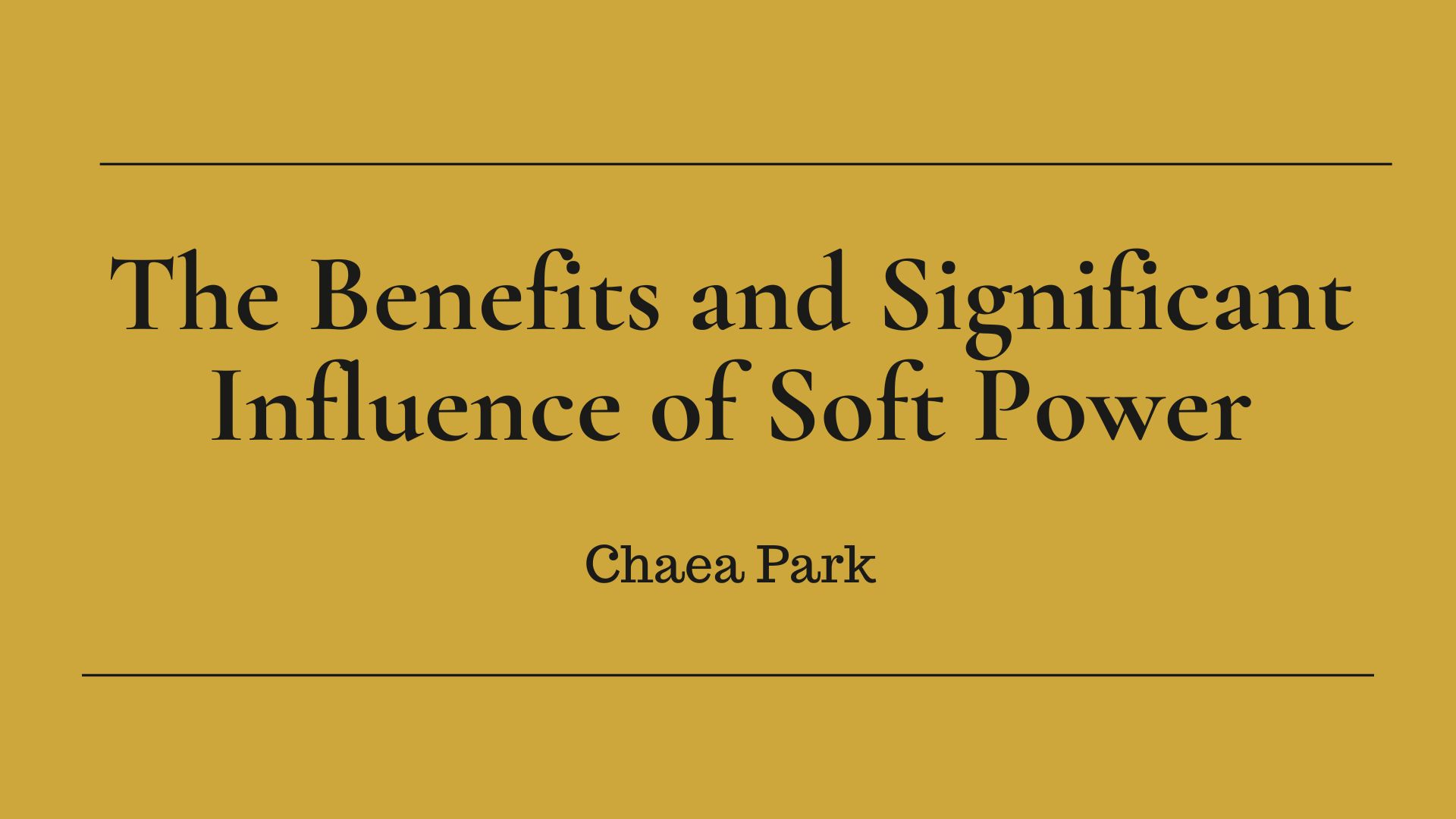When discussing international relations, two concepts are commonly presented. The first is hard power, which is physically manifested through military strength or economic sanctions.
The second is soft power, demonstrated through information technology, culture, and the arts.
Among these contrasting concepts, at this point where communication and exchange between nations are becoming smoother, the ripple effect of soft power is expected to increase further.
Soft power is primarily the diffusion of culture and technology. This article aims to describe the advantages of soft power and its influence.
Within international politics, since soft power does not involve coercive force, its exercise can help maintain more positive diplomatic relations with other countries.
Moreover, such diplomacy can contribute to the development of a nation. Culturally, BTS, a South Korean boy band, is a prime example of demonstrating soft power.
Through BTS’s music and activities, many countries have become interested in South Korea, positively enhancing its image.
Recently, BTS’s speech at the United Nations moved people worldwide, further promoting South Korea on the global stage. With continued activities like these, more countries are expected to have amicable relations with South Korea.
Technologically, the export of products developed by various South Korean companies such as Hyundai Motor, Kia Motors, Samsung Electronics, and Hyundai Heavy Industries has not only contributed to South Korea’s economic growth but also elevated its international status.
As a result, South Korea is recognized globally for its excellent infrastructure in shipbuilding and information technology.
Through the export of technology, South Korea has been able to elevate its position in the international community and achieve economic development. If this trend continues, South Korea can maintain enhanced economic strength and a high GDP.
The influence of soft power is continuous, and its ripple effects are broad. Hard power typically involves specific means such as economic sanctions or military pressure, often resulting in negative perceptions from other countries.
Conversely, soft power attracts other nations naturally to the country exercising it. Therefore, soft power can have a positive impact on overall diplomatic relations and economic exchanges.
Furthermore, soft power has the potential to sustain these positive effects over a long period.
Additionally, while hard power imposes sanctions on specific countries, soft power does not target specific nations but rather showcases the image of the country exercising it to the entire world, enabling more countries and people to benefit from its positive influence.
International dynamics are rapidly changing, and thus, the use of soft power, which allows for the natural establishment of friendly relations with others instead of coercive methods, is emerging as an important aspect of diplomatic success.
In countries like South Korea, where trade and international politics are crucial, the correct use and application of soft power are predicted to lead to positive outcomes.
Moreover, individuals can learn about the importance of soft power through participating in public diplomacy.

